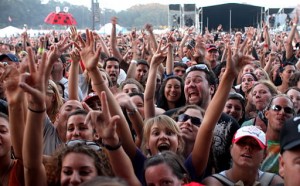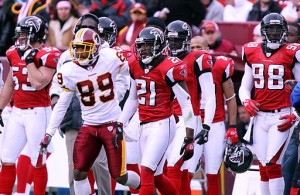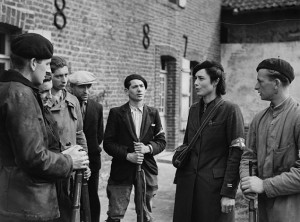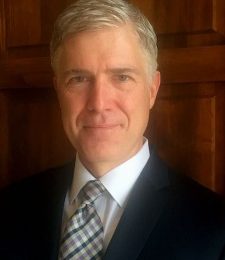 In a column in which he explains why he didn’t go to the Inauguration, Jonah Goldberg says that it wasn’t because he is a conservative never-Trumper. He says that also doesn’t like to go to sporting events or arena concerts. He just doesn’t like crowds. But from there he raises some bigger points: Crowds can become mobs. The unit of American politics is the individual, not the crowd. The experience of being in a crowd is losing one’s individuality in a bigger corporate unity. And then he quotes Christian writer Eugene Peterson on how some people seek religious transcendence through the “ecstasy of the crowd.”
In a column in which he explains why he didn’t go to the Inauguration, Jonah Goldberg says that it wasn’t because he is a conservative never-Trumper. He says that also doesn’t like to go to sporting events or arena concerts. He just doesn’t like crowds. But from there he raises some bigger points: Crowds can become mobs. The unit of American politics is the individual, not the crowd. The experience of being in a crowd is losing one’s individuality in a bigger corporate unity. And then he quotes Christian writer Eugene Peterson on how some people seek religious transcendence through the “ecstasy of the crowd.”
Read what the excerpt says after the jump. How might this apply, say, to megachurches? Isn’t it true that some–not all, I hasten to say–have worship services that try to stir up the “ecstasy of the crowd”?
From Jonah Goldberg, Donald Trump’s Inauguration, Calvin Coolidge & the Unwisdom of Crowds | National Review:
I don’t like crowds. I don’t trust them. Good things rarely come from them. Not all crowds are mobs, but all mobs start as crowds, and I’m a little allergic to the vibrations within in them. The heroic unit in the American political tradition is the individual, not the mob. The crowd is what makes the cult of personality a thing. Without the crowd, it’s just a person.
I ran across this quote recently from the pastor and author Eugene Peterson.
Classically, there are three ways in which humans try to find transcendence — religious meaning — apart from God as revealed through the cross of Jesus: through the ecstasy of alcohol and drugs, through the ecstasy of recreational sex, through the ecstasy of crowds. Church leaders frequently warn against the drugs and the sex, but at least, in America, almost never against the crowds. . . .
Elias Canetti notes in his book Crowds and Power that inside the crowd, “distinctions are thrown off and all become equal. It is for the sake of this blessed moment, when no one is greater or better than another, that people become a crowd.” “But,” Canetti adds, “the crowd, as such, disintegrates. It has a presentiment of this and fears it. . . . Only the growth of the crowd prevents those who belong to it from creeping back under their private burdens.”
By Moses (The Crowd For DMB 1) [CC BY 2.0 (http://creativecommons.org/licenses/by/2.0)], via Wikimedia Commons





